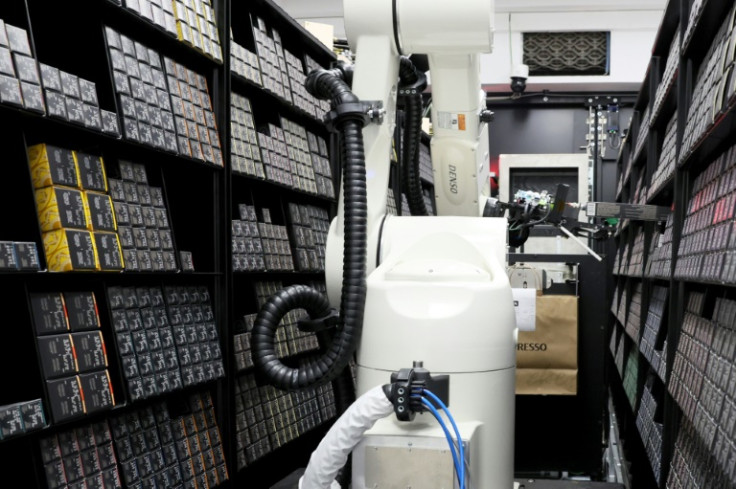
An executive order issued this week by the White House to guide the development of artificial intelligence (AI) officially initiates the control of companies that adopt this technology, which directly affects consumers and workers.
One of the most immediate effects foreseen in the use and application of AI is a potential loss of jobs in sectors where the Latino community has traditionally been employed.
According to a report by CB Insights, nearly 10 million service and warehouse jobs in the United States are at high risk of being displaced in the next 5 to 10 years. These include service jobs such as cooks and waiters, cleaners and janitors, and warehouse workers. Meanwhile, nearly 5 million retail workers are at medium risk of automation in the same time frame.
The risk is greatest in predictable work environments in the least regulated industries. This has already happened in manufacturing, and now millions of restaurant, janitorial, and warehouse jobs are at risk.
In remarks by President Joe Biden on his administration commitment to AI, he reminded that the U.S. and the world are "going to see more technological change in the next 10 —maybe the next 5 years— than we've seen in the last 50 years, and that's a fact. And it's the most consequential technology of our time. Artificial intelligence is accelerating that change. It's going to accelerate it at warp speed."
Those changes are already taking a toll on some industries.
The restaurant industry is one of the largest employers of Latinos in jobs ranging from dishwashers, cooks and kitchen help to waitress. Fast-food chains are already replacing order takers with automated order boards, such as at McDonald's. Zume is a California-based pizzeria that uses cooking robots in its delivery truck.
Janitors, cleaners and housekeepers are another industry with a large Latino workforce. The risk of being replaced is growing as the use of autonomous vacuums and robots to clean pools and mop floors increases.
Currently, more than 400 healthcare facilities, including New United Hospital Center, St. Luke's Hospital and Henry Ford Health System, are using UV disinfection robots to reduce the rate of hospital-acquired infections.
Another sector that employs many Hispanics is moving and warehousing. With the rise of online shopping, robots are also being developed to pick and transport products in giant warehouses like Amazon's.
Large supermarkets are also looking to optimize their services by introducing labor-replacement mechanisms. Giant Eagle acquired a stake in Pittsburgh-based Seegrid to develop vision guided vehicles (VGVs) and a fleet management platform.
Other jobs to be lost are retail salespeople, as many stores such as Macys and Bebe close and adapt to e-commerce, turning to robots for inventory management and customer interaction.
Target tested Tally, a robot designed by Simbe Robotics, in San Francisco. California-based Bossa Nova Robotics is developing a robot that scans shelves and assists workers.
The health care field offers many opportunities for Latina workers to become nurses, aides and health care assistants. And while replacing humans is unlikely, AI-based virtual assistants are being developed to act as intermediaries between nurses and patients, reducing the need for frequent hospital visits.
Construction jobs are also affected. Some companies, such as Blueprint Robotics, are focusing on assembly line solutions. There are also developments in the manufactured housing sector.
Caterpillar, a manufacturer of construction and mining equipment, has invested in Airware, a drone company, for use in surveying, detecting fault lines, and calculating stockpile volumes.
Latino businesses at the helm of AI
It's not all doom and gloom, however, as the advancement of AI has a positive side for the Hispanic community, and some analysis shows that there is no disparity between Latinos and non-Latinos in the adoption of these technologies in their daily lives and businesses.
A recent AI study commissioned by Intuit QuickBooks found that 86% of 1,000 Hispanic and Latino respondents use artificial intelligence in their work, and 38% say they use it daily.
The sample also found that 86% of Hispanic and Latino small business owners and decision makers use AI at work. Many said they want to use it more to increase efficiency, avoid mistakes and gain more knowledge. They also said they find it a source of inspiration, a tool for customer support and data analysis.
© 2025 Latin Times. All rights reserved. Do not reproduce without permission.





